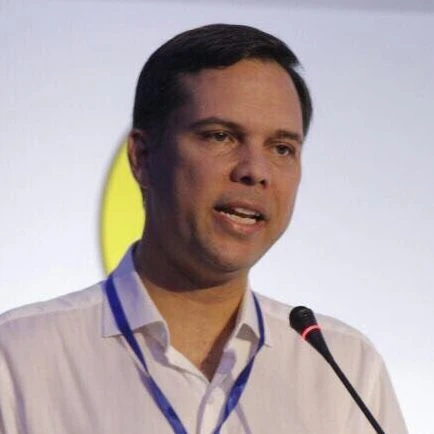‘We won’t rest until we end illegal activities in the country’

In June this year, Colombian gaming regulator Coljuegos awarded its first online gambling licence to Wplay.co. Since then, the list of licensed operators has grown larger, with Betplay.com.co, Colbet.co and Zamba.co also now live in the South American country.
As it prepares to issue two more licences before the end of this year, taking the total number of permits to six, Macarena Rodicio spoke to Coljuegos president Juan B. Perez Hidalgo about the regulator’s plans for the future, and the challenges it has faced since becoming the first Latin American jurisdiction to formally approve online gambling in October 2016.
iGaming Business: With 59% of the population engaging in gambling activities and an investment-friendly regulatory framework, Colombia is set to become a leading gaming jurisdiction. What are the limitations of the market and the challenges it will face in the future?
Juan B. Perez Hidalgo: If you analyse the progress achieved by Colombia’s gaming industry and compare it to that of other jurisdictions across the region, you will agree that there’s tremendous potential for growth and expansion in the country.
The regulation the government is putting in place and the initiatives we have been coordinating are aimed at strengthening growth and boosting competitiveness and innovation in order to keep pace with the developments taking place in this dynamic and evolving industry. Our aim is to be in sync with the industry’s most forward-thinking and prosperous jurisdictions and stay at the forefront of the sector. The inevitable advance of technology opens up a wide range of possibilities to engage with an emerging tech-savvy generation.
As for market limitations, I believe the limits are self-imposed, and are directly linked to a country’s capacity to embrace change and innovation. At Coljuegos, we’re focusing our efforts on promoting innovation across the industry, and I think we’ve done a fantastic job so far. We’ve successfully promoted Baloto Revancha (lottery game) legislation, strengthened our lottery offering, sped up processes regarding land-based gaming and begun rolling out online gaming licences.
iGB: You have spoken about an emerging tech-savvy generation, but there’s another segment of the market, a more conservative one, that continues to bet on traditional games. With a regulated online gambling market, aren’t you worried about cannibalisation of land-based casinos?
JPH: Both sectors are currently enjoying strong momentum. The extensive research Coljuegos has conducted shows that there’s plenty of room for growth in the country, and that neither land-based nor online gaming are in danger as a result of unfair competition. On the contrary, our current regulatory regime enables all sectors of gaming to grow at a steady pace.
iGB: There has been lots of speculation on the number of online gaming licences Coljuegos will issue. With four operators already live in Colombia, how many more licences are you planning on granting before year’s end? What are the targets for next year?
JPH: In a bid to boost local and foreign investment, Coljuegos expects to issue at least two more licences before the year wraps up. We’re committed to providing and promoting a fair and transparent environment for both users and stakeholders by raising awareness among Colombians on the importance of betting on licensed and regulated websites. We won’t rest until we end illegal activities in the country.
iGB: Colombia has so far blocked more than 325 illegal gambling domains to aid the regulated market, including PokerStars, the world’s largest online poker room. After exiting the country, The Stars Group said it intended to apply for a licence. Have you received any expression of interest from them yet?
JPH: We’re in constant conversation with all parties who are interested in obtaining a licence to operate in Colombia. The new regulation came into effect in October 2016 and we have since been urging unlicensed operators to comply with local law, pull out of the market and apply for an online gaming licence in accordance with the country’s legal requirements. Our message to offshore operators is clear: Colombia has an ongoing commitment to transparency and accountability. At the moment, we have four online gaming licensed operators, with several more on the way.
iGB: The executive chairman of Malta’s Gaming Authority recently praised Colombia’s efforts regarding online gaming regulation, saying that you were an example for other Lat Am jurisdictions. Have you had the chance to speak with any MGA representative? With Malta pushing to regulate cryptocurrency in gambling, are you planning to follow in their footsteps?
JPH: Colombia is Lat Am’s indisputable leader when it comes to embracing forward-thinking gaming regulation and change. However, Coljuegos has no jurisdiction on cryptocurrency regulation. The Financial Superintendence of Colombia and the Treasury are responsible for overseeing cryptocurrency regulation and therefore we cannot comment on that.
iGB: What other South American jurisdictions do you think will follow Colombia’s example?
JPH: Countries such as Argentina, Peru and Mexico are making great progress and serve as a model for the region.
iGB: Have you received interest from European companies looking to expand into Colombia’s newly regulated online gaming market?
JPH: We have been receiving enquires from all over the world and Europe is no exception. Coljuegos is diligently working to promote and grow the industry by creating an environment that provides all the necessary conditions for investors to thrive, while safeguarding consumers.
Related articles: Colbet picks up online licence in Colombia
GAMING1 picks up casino, sportsbook licence in Colombia
PokerStars departs Colombian market
Colombia regulator issues second online gaming licence
